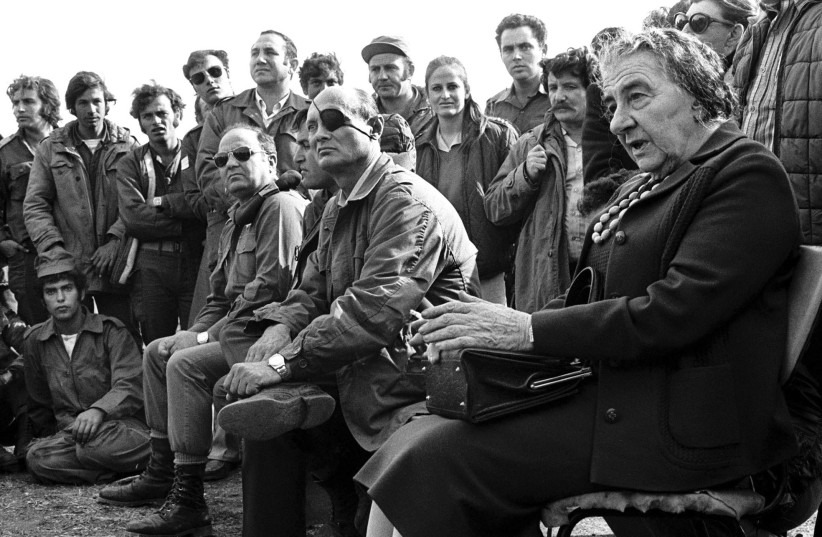Golda Meir considered Palestinian statehood, declassified documents reveal
Former Israeli prime minister Golda Meir acknowledged the possibility of future Palestinian statehood in 1970 – three years after the Six-Day War – according to recently-declassified protocols published by Haaretz on Monday.
Israel’s first female prime minister, who is also the subject of an upcoming biopic starring Helen Mirren that is set to be released in August, held talks in October 1970 with senior ministers – including defense minister Moshe Dayan and education minister Yigal Allon – in which the possibility of a Palestinian state was discussed.
Meir, who famously said “There was no such thing as Palestinians” in 1969, apparently viewed the possibility of a future Palestinian state as likely to materialize in the future. “It will be necessary to leave the Arabs of Judea and Samaria an option to earn self-determination at a later stage, if and when it suits us,” Meir said at the start of the meeting.
“In other words, there will be another country (next to Israel),” she declared.
 GOLDA MEIR is seen here with Moshe Dayan as they meet with soldiers on the Golan Heights during the Yom Kippur War. The late prime minister was born in Ukraine. (credit: REUTERS)
GOLDA MEIR is seen here with Moshe Dayan as they meet with soldiers on the Golan Heights during the Yom Kippur War. The late prime minister was born in Ukraine. (credit: REUTERS)Meir’s 1970 outline of a future Palestinian state
Meir began the talks by arguing that the Israeli War of Independence allowed Israel to offer minimal concessions in case of negotiations with the Palestinians and rejecting the idea of Jerusalem serving as the capital of a future Palestinian state.
“I’ve felt for a while, and recently with greater intensity, that what we call ‘the Palestinian problem’ is starting to bother, morally and politically, the best of our people, including commanders, major generals, and all who carry the IDF on their back,” Alignment (now Labor) minister Yisrael Galili said at the time. “This shows that the problem isn’t something that was imported here, but rather it has an origin, it isn’t artificial.”
While other ministers at the talks were receptive to the idea of a future Palestinian state, they also thought that Israel should be highly cautious – Allon went as far as to compare a potential Israeli declaration of a Palestinian right to statehood to the 1917 “Balfour Declarations” in which the British government announced support for the founding of a Jewish state in Ottoman-ruled Mandatory Palestine.
Allon also stated that the existence of the Palestinian people was not up to Israeli politicians to decide. “If they see themselves as Palestinians, then we can say 1,000 times they’re not, but they will remain [Palestinians] regardless.”
While cognizant of realities on the ground and political risks involved, Allon disagreed with Meir. “I don’t suggest encouraging a Palestinian state… Rather, in the long term, a peace contract that will keep options open.”





Comments are closed.